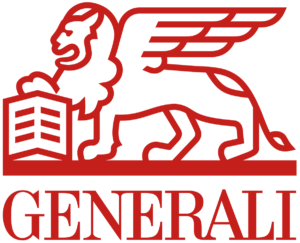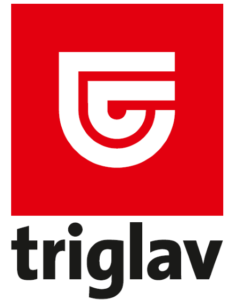Newsletter ![]() Issue #4
Issue #4 ![]() July 2020
July 2020
- Editorial
- Project progress
- BEACON business overview
- Climate change and weather index insurance
- BEACON’s corner
- Upcoming events
- In case you missed
- Join us
Editorial
It is a pleasure to have you back on our fourth BEACON project newsletter!
In our latest issue you can learn more on BEACON’s project progress by getting an overview on BEACON business activities. Furthermore, get our insights on climate change and weather index insurance and find out how Insurance Companies were affected by COVID-19 pandemic.
We invite you to regularly view our videos on YouTube, browse the project website which is rich in content and follow us on social media to learn more about our project’s progress and findings.
Follow us and stay informed on the latest project developments!
Project progress
The 3rd Project Meeting was organized on the 13th & 14th of July. Although partners met remotely for this meeting, they managed to work closely during this two-day event.
Partners focused on the BEACON services and more specifically on validation and accuracy methods, as well as on the toolbox user experience from the pilot implementation in Serbia, Spain and Greece.
In the frames of the meeting two workshops were organized where partners exchanged ideas on BEACON Business Model testing and exploitation and the project Communication and Dissemination activities.
Overall, the project is showing significant progress and market opportunities have been identified.
BEACON business overview
As this period behind us was marked with the pilot implementation phase and testing of BEACON services, the BEACON business activities were created to follow the main project phase. Namely, business efforts were oriented towards the internal communication with all BEACON Lighthouse Customers (LHCs). Specifically, our pilot companies AgroSeguro, Karavias Underwriting and Triglav Srbija, focused on business modelling.
The BEACON pilot phase is related to the demonstration of good co-creation practices, in a twofold manner. Namely, within the BEACON pilot operational setting, besides testing and monitoring of pilot parameters, the main business activity was the collection of feedback from our pilot companies, through their comments, and requests. In the light of pilot monitoring and collection of technical remarks, some important business insights were gathered as well. In this way, needs and suggestions from real industries/ companies will serve to better mold the BEACON business proposition for the commercialization journey and the design of accurate BEACON business models.
Beside business activities related to pilot implementation and continual communication with BEACON LHCs, other already established business activities that took place within this period were:
![]() Market Outreach activities continued following a slightly different approach and several branches within an agri-insurance company were contacted.
Market Outreach activities continued following a slightly different approach and several branches within an agri-insurance company were contacted.
![]() Market Analysis was oriented towards the markets interested into the introduction of index insurance products, markets outside Europe and markets that are big agricultural players and/or that pose the potential to become important players in the sector.
Market Analysis was oriented towards the markets interested into the introduction of index insurance products, markets outside Europe and markets that are big agricultural players and/or that pose the potential to become important players in the sector.
![]() More BEACON competitors were identified.
More BEACON competitors were identified.
Finally, the BEACON Business team will define the next steps regarding IPR issues, BEACON Ambassadors and testing of business models with BEACON LHCs.
Climate change and weather index insurance
Nowadays, new risks from climate change are emerging and disaster impacts are constantly increasing in terms of the severity, intensity, and frequency of disaster risks. Natural disasters have a significant effect in the agricultural sector, where about 2.5 billion people worldwide depend on.
Over the years 2005 and 2014 the agricultural sector sustained losses and damages from natural disasters at a cost of $93 billion [1]. A 2018 report from the Intergovernmental Panel on Climate Change estimates that global economic damages by 2100 would reach $54 trillion with a 1.5oC of warming of the planet, $69 trillion with 2oC of warming and $551 trillion with 3.7o Celsius of warming [2].
The insurance industry is increasingly integrating climate change considerations into their investment strategies and processes as part of the broader sustainability topic. The mounting occurrence and severity of extreme weather events have highlighted the need to focus on the effects of climate change to insurance risk.
Climate change is thus becoming a fundamental business concern for agricultural companies and farmers, with implications for governance, strategy, risk management and operations.
Weather index insurance is a promising adaptation instrument in this regard as claims may be calculated using measured variables (i.e. rainfall), and insurance companies can thus assess damages remotely. Additionally, participating farmers can purchase insurance at relatively low cost that can help them recover from disasters and lower various forms of risk.
Nonetheless, voluntary take-up of index insurance as it typically happens with new products and services, remains low whilst scaling up seems challenging. According to a report [3] of the CGIAR Research Programs on Climate Change, Agriculture, and Food Security (CCAFS) a number of challenges and evidence gaps arise in the implementation of index insurance. Amongst the main challenges are:
![]() Data availability: Insurance schemes face an absence of data, such as data on rainfall and crop yields, necessary to develop indices and monitor risks. Advances in Information and Communications Technologies (ICTs) and data processing present new opportunities to enhance the quality of index insurance and reduce basis risk.
Data availability: Insurance schemes face an absence of data, such as data on rainfall and crop yields, necessary to develop indices and monitor risks. Advances in Information and Communications Technologies (ICTs) and data processing present new opportunities to enhance the quality of index insurance and reduce basis risk.
![]() Targeting and design of insurance: The heterogeneity encountered amongst farming enterprises necessitates the design of ad hoc insurance products that best meet specific needs of different farmer groups.
Targeting and design of insurance: The heterogeneity encountered amongst farming enterprises necessitates the design of ad hoc insurance products that best meet specific needs of different farmer groups.
![]() Bundling with climate-smart agriculture and risk layering: Bundling index insurance with climate-smart technologies, can make it value-adding proposition for farmers and as such increase demand.
Bundling with climate-smart agriculture and risk layering: Bundling index insurance with climate-smart technologies, can make it value-adding proposition for farmers and as such increase demand.
![]() Regulatory and enabling environment: The establishment of a legal and regulatory framework for implementing contracts that both buyer and seller can trust is vital to making insurance and other financial instruments work. Achieving partnerships between government, insurers and international reinsurers are fundamental to this effort.
Regulatory and enabling environment: The establishment of a legal and regulatory framework for implementing contracts that both buyer and seller can trust is vital to making insurance and other financial instruments work. Achieving partnerships between government, insurers and international reinsurers are fundamental to this effort.
Many obstacles remain to fully comprehend the long-term resilience of index insurance and further research is needed. Overcoming the aforementioned challenges will require more partnerships between agricultural stakeholders to build evidence, promote innovation, and scale up solutions that will strengthen the use of financial inclusion in building resilience.
[1] https://united-nations-university.foleon.com/publications/intro/abstract/
[2] https://www.insurancejournal.com/news/national/2019/06/13/529201.htm#
[3] https://www.ifpri.org/blog/can-weather-index-insurance-help-farmers-adapt-climate-change
Beacon’s corner
Due to the current situation with regards to COVID-19, representatives of our LHCs and pilot companies shared their experiences on the effects the COVID-19 outbreak.
Mr. Nemanja Beljanski (Generali) and Mr. Radoje Živanov (Triglav) informed us on the difficulties they encountered.
![]() How did COVID-19 incident affect your operations?
How did COVID-19 incident affect your operations?
Two main aspects affected our operations: tied agents were limited in sales activities due to movement regulations, and also farmers hesitated to invest in insurance due to market (especially fresh market) uncertainty.
![]() What did you change in terms of operations to mitigate the risk and proceed accordingly?
What did you change in terms of operations to mitigate the risk and proceed accordingly?
We modified our procedures in order to keep our sale capacity. We made contracts with local delivery company, and also made possible to accept policies/coverages without a signature of a client (we used an e-mail or SMS or viber acceptance). We also intensified contacts by phone instead of traditional “face to face”.
![]() How did you revise the damage handling process (if any)?
How did you revise the damage handling process (if any)?
By acquiring appropriate equipment for our loss adjusters (special helmets, masks and gloves).
![]() What aspects of BEACON you could use or would be of value to you under these circumstances?
What aspects of BEACON you could use or would be of value to you under these circumstances?
Building up capacity for online policy sales, and also some kind of limited self-assessment.
![]() How did COVID-19 incident affect your operations?
How did COVID-19 incident affect your operations?
The COVID - 19 pandemic situation has postponed the sale season. Instead of the expected sale during the month of April and May, the season started at the end of April. Moreover, as this is a conservative industry, farmers - our main clients - get used to organizing in-person meetings with our representatives, when it comes to the situation of buying the agri-insurance. This year, such an organization of meetings was impossible. Additionally, the year is very specific when it comes to crops. It has the prolonged period of seeding as well and our season is directly connected to it. Taking into account all, it was a very challenging period.
![]() What did you change in terms of operations to mitigate the risk and proceed accordingly?
What did you change in terms of operations to mitigate the risk and proceed accordingly?
To perform the sale session successfully, all meetings and contracting tasks were done by phone. Also, the distribution of resources was slightly changed.
![]() What aspects of BEACON you could use or would be of value to you under these circumstances?
What aspects of BEACON you could use or would be of value to you under these circumstances?
Unfortunately, when it comes to support for sale activities and organization of meetings, no. Still, in the case of better distribution of work force, I hope that BEACON could help. Providing the better prognosis, more accurate data related to damage, the whole process can be more efficient during similar situations.
Upcoming events
Please note that due to the coronavirus all events may be subject to cancellations or rescheduling.

![]() In2Risk™
In2Risk™
![]() October 8-10, 2020
October 8-10, 2020
![]() Washington DC, USA
Washington DC, USA
![]() Website
Website
The event, presented by The Institutes CPCU Society, tackles a variety of issues such as Insurtech, Big Data, Artificial Intelligence, Ethics, Risk Management and Cyber Security. In2Risk addresses anyone wishes to stay up-to-date on the latest issues on risk management and insurance industry and anyone who is into networking with their peers, or into continuing their education. The rapid pace of today’s business world means that the best leaders are the ones who keep up and keep growing.

![]() SIR 50th ANNUAL CONFERENCE
SIR 50th ANNUAL CONFERENCE
![]() October 18-21, 2020
October 18-21, 2020
![]() Cincinnati Ohio, USA
Cincinnati Ohio, USA
![]() Website
Website
The theme for this year’s event is “#SIR50 Position Now for Future Success: Gain Insights. Generate Ideas. Grow Influence". In 10 years, the insurance industry will not look like it does today. Customers expect a new experience that meets them where, when and how they decide. New technology and data are transforming the dynamics of this experience. Competitive pressures arising from these changes are forcing carriers to re-examine the foundations of their business models.

![]() BLOCKCHAIN SUMMIT
BLOCKCHAIN SUMMIT
![]() October 20-21, 2020
October 20-21, 2020
![]() London, UK
London, UK
![]() Website
Website
Two hundred visionary speakers and one thousand industry and technology leaders will meet to discuss the future of blockchain including the digital transformation of the financial landscape. The summit will cover the 4 tracks of the future of payments, banking transformation, the business of blockchain, regulation and insurance transformation. Blockchain Summit is the leading Blockchain for Business event – offering unparalleled access to decision makers, visionaries, influencers and disruptors from the world of enterprise and tech.

![]() BLOCKCHAIN TECHNOLOGY CONFERENCE
BLOCKCHAIN TECHNOLOGY CONFERENCE
![]() November 23-24, 2020
November 23-24, 2020
![]() Munich, Germany
Munich, Germany
![]() Website
Website
Within two days with more than 15 sessions, workshops, and keynotes, three main tracks that will be analysed in this conference presenting the latest technologies in blockchain applications, smart contracts, dApss and other. The main sessions include “Blockchain Advanced Development”, aiming at sharing technical know-how, “Blockchain Impact & Strategy” where real-world inspiring use cases will be presented and “Blockchain Technology 101” presenting blockchain main principles, tools–frameworks & libraries–and implementation.
In case you missed
Join us
Do you want to stay up to date with all the latest BEACON news ?
Do you have any questions or would like to get in touch with us to share your insights, feedback or opinions?
Sign up to our mailing list...
Follow us on social media...



